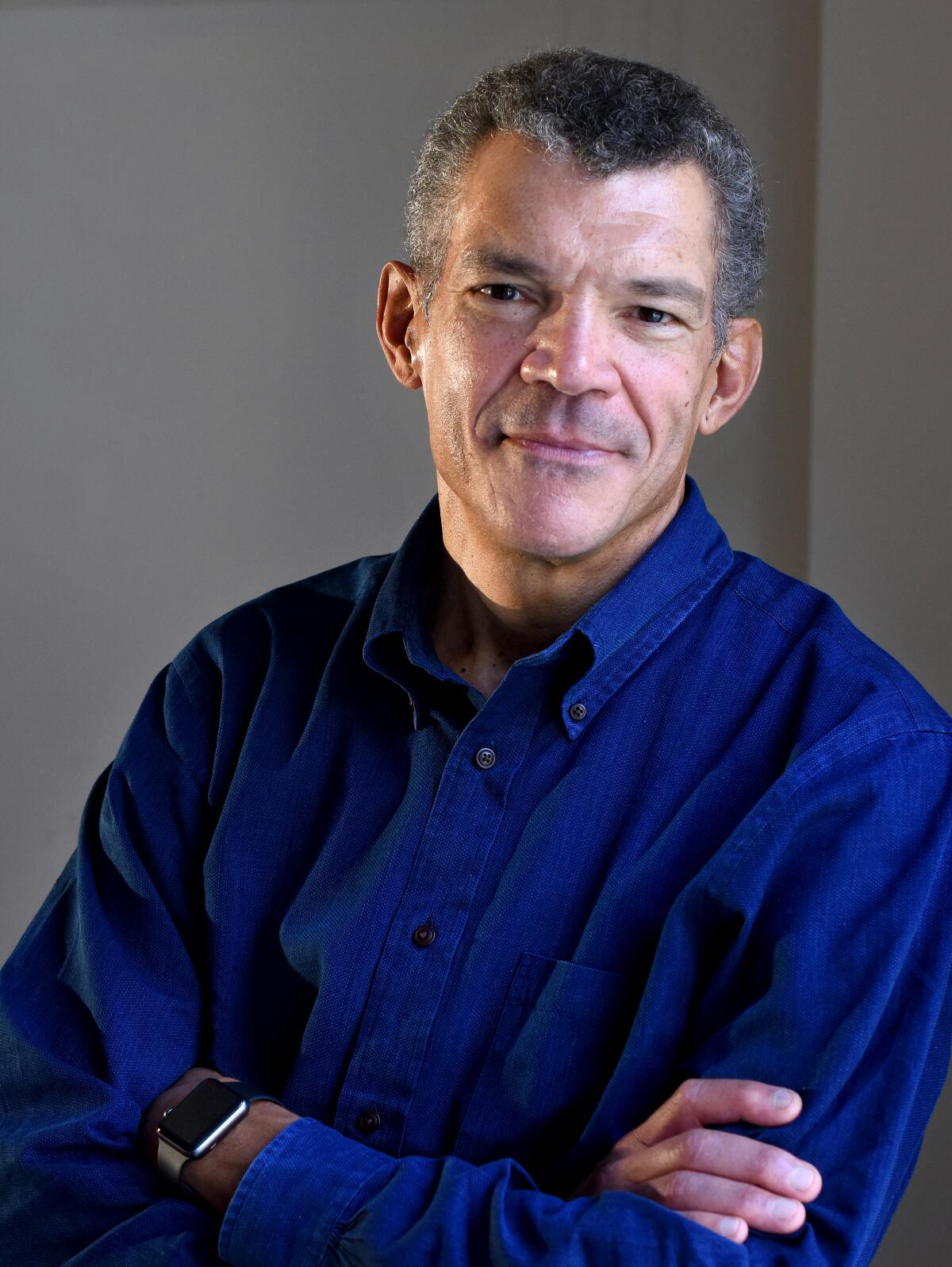E book Assessment
The Afterlife of Malcolm X: An Outcast Turned Icon’s Enduring Affect on America
By Mark WhitakerSimon & Schuster: 448 pages, $31If you purchase books linked on our website, The Instances could earn a fee from Bookshop.org, whose charges help impartial bookstores.
For those who had been round within the early ’90s you noticed an entire lot of baseball caps emblazoned with a easy capital “X.” They marked an ingenious advertising and marketing stroke on the a part of filmmaker Spike Lee, who would quickly unveil considered one of his greatest films, 1992’s “Malcolm X,” starring Denzel Washington because the fiery, prophetic and sometimes misinterpreted Black nationalist chief. The movie and the dialogue and debate it impressed marked a brand new surge in Malcolm Fever that included however went far past trendy headwear.
However Malcolm X, who was assassinated in 1965 shortly after breaking with the Nation of Islam, by no means actually went out of fashion. That is the argument that drives “The Afterlife of Malcolm X,” Mark Whitaker’s incisive survey of Malcolm’s enduring place in American tradition, and the slow-grinding technique of discovering who actually killed him (and who didn’t). “Afterlife” actually tells two tales, working alongside parallel tracks: One is a piece of cultural historical past that touches on Malcolm’s attraction to individuals as disparate as Black Energy firebrand Stokely Carmichael and conservative Supreme Court docket Justice Clarence Thomas, who as soon as groused, “I don’t see how the civil rights people of today can claim Malcolm X as their own.” The opposite is a authorized thriller concerning the three males imprisoned for pumping Malcolm’s physique filled with bullets that February day in 1965 on the Audubon Ballroom in Washington Heights.

Creator Mark Whitaker.
(Jennifer S. Altman)
Whitaker is particularly deft at refocusing acquainted characters, photographs, moments and actions by means of a Malcolm X lens. The picture of John Carlos and Tommie Smith on the medal stand on the 1968 Summer season Olympics in Mexico Metropolis, gloved fists within the air in a Black energy salute, has been seared into the historic consciousness. In “Afterlife,” we study {that a} teenage Carlos used to comply with Malcolm round Harlem like a pet canine, ceaselessly taking in his lectures and sermons. “I was just in love with the man,” Carlos as soon as recalled. When it got here time to prepare earlier than the 1968 Olympics — Carlos and Smith had been among the many athletes contemplating a Black boycott of the video games, partly to protest what they perceived because the racism of Worldwide Olympic Committee President Avery Brundage — the 2 sprinters had been already feeling Malcolm’s spirit.
The hip-hop chapter can be a standout, specializing in how Malcolm turned a drive within the burgeoning avenue tradition first by means of his spoken phrase — Keith LeBlanc’s 1983 minimize “No Sell Out” was among the many first of what turned numerous songs to pattern his voice — and, later, by means of the Afrocentric imaginative and prescient of artists together with Public Enemy and KRS-One. Malcolm hadn’t disappeared as hip-hop took flight within the ’80s, however neither was he the family title he as soon as was. Public Enemy chief Chuck D remembers the time when he and collaborator Hank Boxley (later Hank Shocklee) had been placing up live performance flyers bearing Malcolm’s title and picture. A younger fan approached and requested who Malcolm the Tenth was. “We looked at each other,” Chuck recalled, “and said, ‘Well, we’ve got to do something about that!’”
Whitaker mounts a convincing argument that realizing the person’s title is extra essential now than ever. “Today,” he writes, “amid a backlash against affirmative action, so-called diversity, equity, and inclusion programs, and other measures designed to rectify past racial injustice, Malcolm’s calls for Black self-reliance have never seemed more urgent.”
“The Afterlife of Malcolm X” is a fascinating reminder that the likes of Malcolm by no means actually die. Typically, they even find yourself on hats.
Vognar is a contract tradition author.




